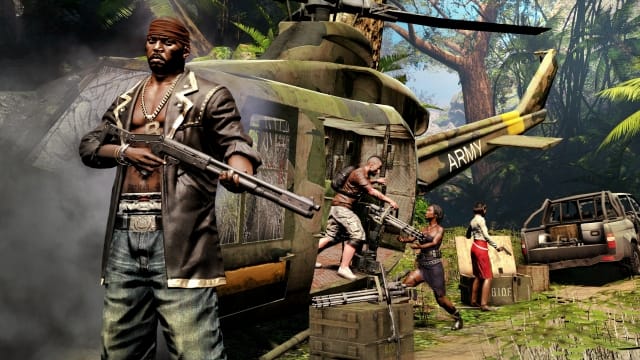
The first truly major marketing gaffe of 2013 arrived yesterday, in the form of a bloodied, dismembered, bikini-clad statue offered to UK and Australian purchasers of Dead Island: Riptide special edition. It was a display of spectacular density, since publisher Deep Silver seems to have forgotten all about the many recent controversies surrounding the depiction of women in video games, like the Tomb Raider rape comments, everything that happened around Anita Sarkeesian, and, oh yes, Dead Island’s own delightful “feminist whore skill” code leak.
This is obviously a problem, but there’s some signs of hope.
– – –
Of course it isn’t just the game industry with a sexism/misogyny problem. The tech world is rife with pervasive nastiness towards women – take it from the dearly departed Aaron Swartz, who at 21 had a better handle on this issue than most folks come to in their lifetimes. In an interview from 2007, Swartz outlined how deep sexism had pervaded the tech industry:
If you talk to any woman in the tech community, it won’t be long before they start telling you stories about disgusting, sexist things guys have said to them. It freaks them out; and rightly so. As a result, the only women you see in tech are those who are willing to put up with all the abuse. […]
The denial about this in the tech community is so great that sometimes I despair of it ever getting fixed. And I should be clear, it’s not that there are just some bad people out there who are being prejudiced and offensive. Many of these people that I’m thinking of are some of my best friends in the community. It’s an institutional problem, not a personal one.
Back to Dead Island. While Joe likened the bloody bust to a sort of “non surgical sterilization” device yesterday (his thesis being: “who on earth will get laid with that thing in their bedroom”), I think the story highlights another positive – the power of a little good old social shame. Gamers, critics, and developers have been incredibly negative on the statue, shaming the wayward marketers by calling the statue out for being problematic (as well as ugly and gross, and not just for aesthetic reasons). It’s a lot like telling your sheltered friend that his racist joke wasn’t funny, instead of laughing right along with him awkwardly.
The outcry was such that Deep Silver even sent out a PR-speak apology, complete with nasty little jabs like “[the statue], which was cut up like many of our fans had done to the undead enemies in the original Dead Island…” You can almost hear the gritted teeth and pained emphasis on “fans” and the unspeakable things said fans do in-game.
To my knowledge, none of those fans keeps a physical trophy of their in-game dismemberment proudly displayed atop their console. There is, in fact, something very different between in-game content and… this, chiefly the context that the game is played in a fantasy world.
What made me so happy and hopeful about this mess was the immediate negative reaction from so many voices in the industry. In years past, I’m not so sure the games press would’ve identified the image of a mangled, obviously female corpse as inextricably connected to the idea of brutal misogyny (as opposed to say, being funny and weird and totally worth posting as easy linkbait). Nor am I certain that so many writers and developers would have taken this as seriously as they clearly have in this case. It gives me hope – as a woman and as a gamer – that all of the soul-searching and conversation sparked by the backlash to Anita Sarkeesian and the Tomb Raider debacle has actually done gaming some good.
In this case, a little public shame was a very a good thing. I can only hope the message evolves from “be careful” to “stop being a part of the problem”.




